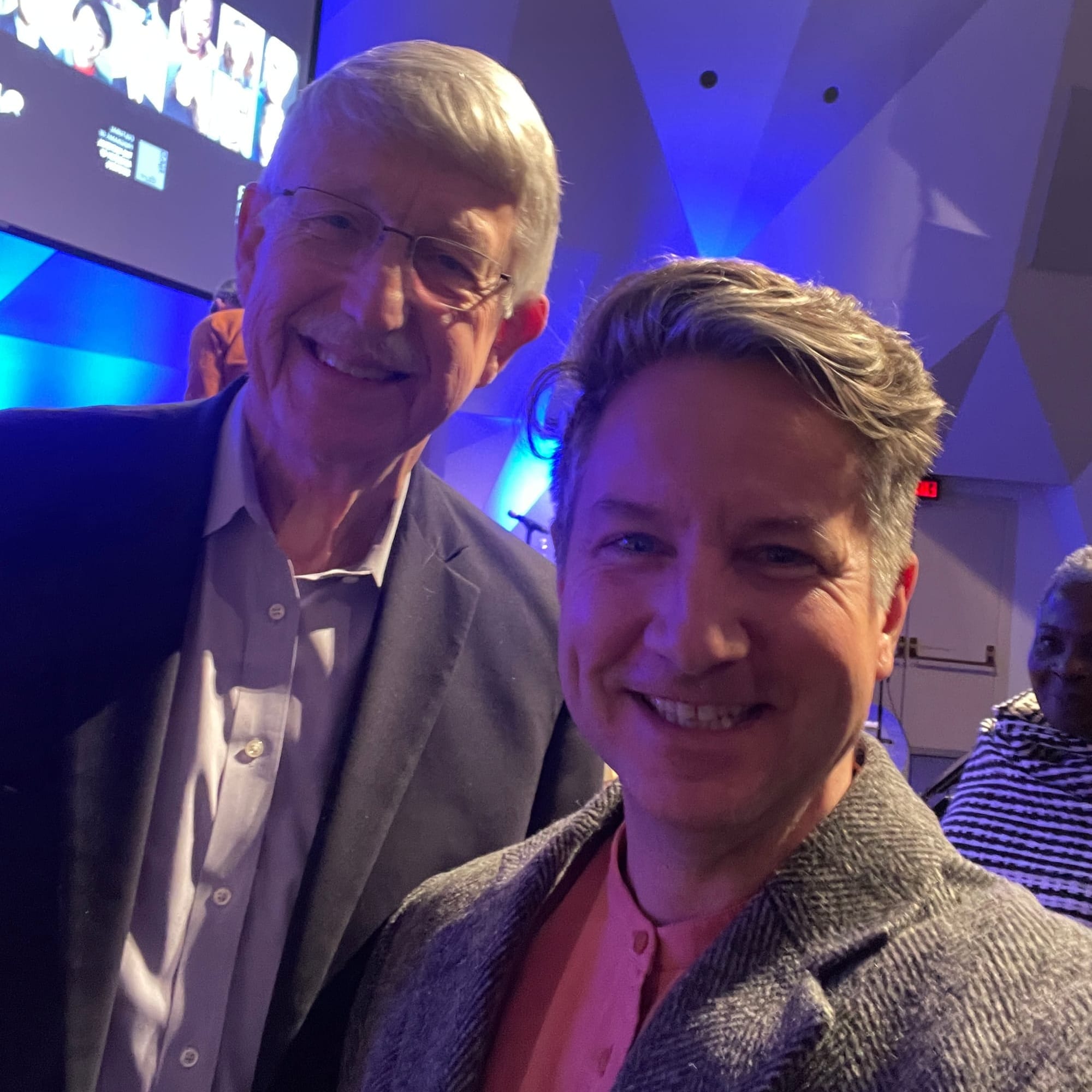When a medical doctor becomes the patient, tables turn. As a patient, the prestigious buttoned-up lab coat is quite literally replaced with an all-too-accessible patient gown – an embarrassing experience we all relate to.
And when our docs share their story of going through that experience with us – dealing with scary moments, making difficult choices – we listen.
Take for example the vulnerable story of being diagnosed with prostate cancer shared by Dr. Francis Collins in the Washington Post.
"Having now received a diagnosis of aggressive prostate cancer and feeling grateful for all the ways I have benefited from research advances, I feel compelled to tell this story openly. I hope it helps someone. I don’t want to waste time."
Dr. Collins isn't just any doctor, he's the former director of the National Institutes of Health serving from 2009 to 2021. Remarkably serving our nation at the will of both Republican and Democrat Administrations.
He is a medical doctor; and also an extraordinary public heath leader that understands politics.
I have met Dr. Collins and admire his work. When I read his story, I felt like I was right there with him. Praying for a positive outcome. I also noticed how brilliantly he wove a political argument of the value of research throughout his story.

We Trust Our Doctors
We Listen to our doctors. We believe what they have to say. And ultimately we trust them with our own life.
No matter how strong, healthy and powerful we think we are, it can all change in an instant. When that time comes, if we are lucky, it will be our doctors helping us understand the situation, be there to advise tough choices, and understand the way forward in our health journey. They are often the bearer of bad news, as well.
The personal bond of trust between you and the 'doctor' in our contemporary society carries profound significance from a communication architecture perspective.
This channel of trust, revered and protected since Socrates acknowledged its sacred nature in his final breath before passing from the fatal dose, remains an enduring cornerstone of health.
I first encountered this perfect story dynamic in a conversation with Dr. Julian Gold on my podcast. Like Dr. Collins, Dr. Gold is both a respected medical doctor and someone that understands politics. He is a 30-year physician and former mayor of Beverly Hills in California.
On the podcast he shared his vulnerable inspiring journey of battling Acute Myeloid Leukemia. From being a respected medical professional to becoming a patient, Dr. Gold shared how he had to navigate the challenges of his diagnosis and treatment.
Imagine if you or someone that you love are diagnosed with Acute Myeloid Leukemia. I can guarantee that Dr. Gold's story would be one source of information worth hearing.
In fact, it's increasingly becoming the most important source of truth in health communication. According to a recent study by a large commercial PR firm on trust in health:
"The strength of trust in the doctor is in marked contrast to that in the societal institutions. Trust in Business, NGOs, Government and Media to do what is right in addressing people’s health needs and concerns has declined this year."
Trusted individuals, such as medical doctors, play a significant role in shaping our understanding of health-related matters. Their expert opinions hold substantial influence due to the credibility they bring to the conversation (Ethos). When these trusted figures share personal experiences that evoke emotion and relatability (Pathos), while presenting logical arguments (Logos), they create a powerful narrative – the 'Perfect Story.' This trifecta of rhetorical elements can profoundly impact the way we perceive and engage with health communication, ultimately leading to more informed and effective decision-making.
To elevate the conversation around Health in America, we must continue to platform credible storytellers, like our medical doctors, that are not only knowledgeable about the topics, but also can relate and share their real-life experience of being a patient alongside us.
